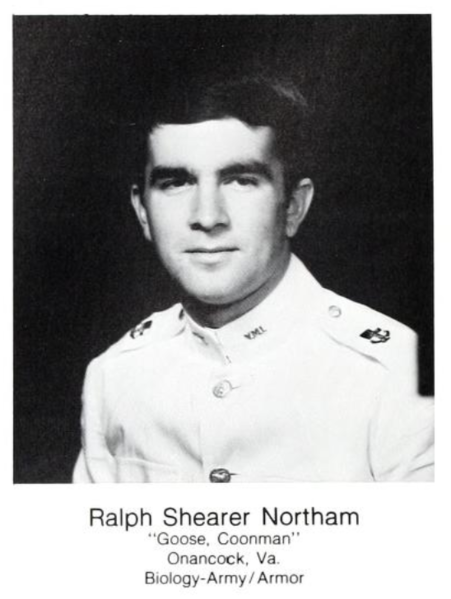
Feb 10 2019
This week, news developments in the American state of Virginia dealt citizens, political leaders and parties an even tougher dilemma. In business, the world’s richest man decided to spill the beans before a tabloid could, and the US administration and its intelligence community made contradictory statements.
As The World Turns
Triple scandal, political bind, identities collide
America’s Black History Month got off to a rough start last week, when Virginia Governor Ralph Northam had to defend his decades-old medical school yearbook photo of two men dressed in symbols of ridicule and oppression against African Americans. One week later, the state’s next two governing officials – the Lieutenant Governor and Attorney General – are now dealing with sexual abuse allegations and blackface revelations of their own. All three leaders belong to the Democratic party. If all of them were to resign, a Republican would take charge.
It’s one thing to call for the Governor to resign, knowing there’s a competent Lieutenant Governor who can step in. Party leaders can stay true to the principles they’ve adopted – in this case, justice for women and/or people of color – and retain power at the state level.
But when you’re faced with a choice between principle and power, the next step can seem less certain. Do you cede political ground, in order to stay true to the values you’ve pledged to uphold? Or do you place this moment in its larger and historical context, using it as a chance to listen to and uphold or expand the rights of the African American community?
Even voters in Virginia are struggling to answer this question for themselves. African American voters who threw their support behind Ralph Northam now feel betrayed. As this PBS Newshour article describes the voters’ dilemma:
“Do they forgive the Democrats, keep Republicans out of power and demand the governor get serious about racism? Should Northam step down and hand the office to African-American Lt. Gov. Justin Fairfax, who faces sexual assault allegations? Or should all three of them walk away and let principle prevail, even if the other party takes charge?”
The article goes on to quote Joe Dillard, a Virginian for whom the choice is hard, but clear.
“Do I think I should support Democrats to the point where I allow certain things that my great grandparents would slap me in the face for letting slide? No, I won’t,” Dillard said. “I am not a Democrat before I’m an African-American man. For me, it’s always people over party.”
Intelligence community contradicts White House
If there’s one thing that America’s allies have come to expect and, in most cases, rely on, it’s the US government’s capacity to speak in one voice. My layperson’s understanding is there’s an inter-agency process that coordinates and crafts a cohesive response to other countries. This synergy is especially important in matters of defense, security and diplomacy, where the stakes are high.
While this article from TIME magazine this week rehashed widely reported (and rumored) disconnects between the US intelligence community and its commander-in-chief, it also explained how this disconnect would impact the outcome of upcoming meetings with the leaders of North Korea and China.
Salacious photos, surprise counter-attack
I tend not to write about stories that border on titillating or gossipy – these have no place in a newsletter about peace – but what happened with Jeff Bezos this week is worth noting. (In summary, tabloid magazine the National Enquirer wanted to publish compromising photos of Amazon founder Jeff Bezos, unless he agreed to their terms.)
1) It raises the question of the limits and boundaries of free speech. Bezos characterized the incident as extortion, not the critical journalism “in the public interest” that the National Enquirer claimed it to be.
2) Bezos preempted and out-maneuvered them by publishing this article on Medium, which revealed what the National Enquirer was up to. It’s striking that he chose Medium, using it as an independent platform to tell his story, instead of issuing a press release, or communicating through an attorney or spokesperson.
3) As Bezos writes in that Medium piece, “If in my position I can’t stand up to this kind of extortion, how many people can?” In this polarizing and tribal moment we’re living through, more people are capitalizing on our divisions – and using the speed and anonymity of technology – to extort all sorts of things from us…our time, our resources, even our vote. The more mindful and informed we are about this new world of subterfuge, the more we can reduce our exposure and enhance our peace of mind.
Om Is Where The Heart Is
Should perpetrators (still) get to live their dream life?
To continue the theme of making hard choices in response to terrible behavior, I reflected on this interview with educational counsellor and consultant Hanna Stotland. Ms Stotland helps kids with a past get into universities across America. But what if those kids were accused of sexual misconduct? Do these students – more typically young, white males – still get to live their American academic dream, that marginalized ethnic groups are systemically denied? And what is the right response when someone tells you they’ve been sexually assaulted?
Here’s one key exchange in the interview:
Michel Martin (interviewer): “…(to) go to a four year college, a private college, a prestigious college, that’s not in the Constitution, and I remembered one of the interviews you said that there was a client you helped who who was super happy because he didn’t have to go to community college and the question I think a lot of people might have is why are they entitled to go to a private four year college, a prestigious college…why is that something that they have to have?”
Hanna Stotland: “They don’t have to have it and they aren’t entitled to it.”
“We get the the motto almost believe women and I think we absolutely should believe women and accusers in general when we are their friends, their doctors, their professors, their family members. When your student or patient or friend or loved one comes to you and says I was assaulted, believe them, absolutely believe them.
If you are a judge a juror a journalist or a decision maker at a college, there’s no one you should automatically believe.
In the first instance, your job is to provide support and care for the person in your life and in the second much smaller group, and many people are in both groups at different times, but in the second much smaller group, your job is to seek the truth.”
I agree with the premise of what Ms Stotland lays out, but the practical truth is often messy, something that she acknowledges too. Many cases are reported months or years after the fact, one or both parties were inebriated (which makes recollection even hazier), there’s often a lack of definitive evidence, and shame/guilt/trauma means many victims don’t even report incidents of misconduct (or worse).
I’ve heard it said, more than once now, that revolutions are messy at the start. Rules don’t exist, boundaries are porous, and penalties may be too harsh or lenient. #MeToo is no exception. We’re still trying to navigate this new frontier of the sexual, and power, dynamic. There will be mistakes, and casualties. But we owe it to ourselves to keep doing the work.
News and Views
Podcast #2 is almost live
I’m a few steps closer to launching my second podcast. It’s essentially a companion to this newsletter, so I’ve been figuring out all the ways to merge it with my weekly newsletter writing process. I spend all week thinking about this newsletter, so I figure the podcast would be a great way to include you in the conversation.
More updates soon!
In the next issue:
It’s Valentine’s Day next week, and I’ll be attending an event on the modern ways we find love.
Should be fascinating – I’ll share some of the highlights with you.
Till then…
Live well and lead large – Maya

